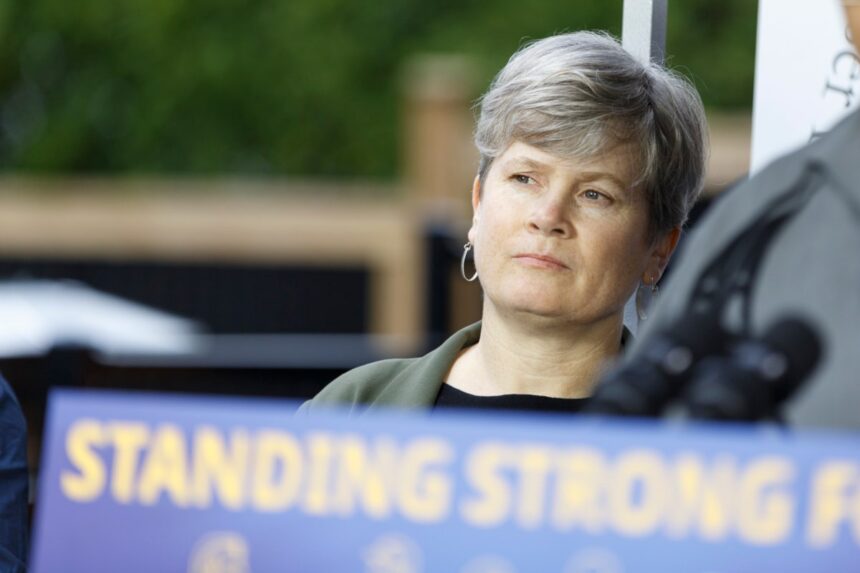After four key members resigned from a provincial drug-funding committee, British Columbia’s health care system faces renewed questions about how medical decisions are made and who ultimately holds the power to override expert recommendations.
The resignations came after Health Minister Adrian Dix reversed a decision that denied coverage for a costly medication needed by a 15-year-old girl with a rare metabolic disorder. While the intervention saved one family from financial ruin, it has triggered concerns about political interference in evidence-based health policy.
Dr. Michael Breslin, who had served on the committee for seven years before resigning, expressed frustration over what he sees as undermining the committee’s work. “When scientific recommendations are overturned for what appear to be political reasons, it challenges the integrity of the entire system,” he told me during a phone interview last week.
The medication at the center of the controversy costs approximately $16,000 monthly and treats phenylketonuria (PKU), a condition that prevents the body from properly processing an amino acid found in protein-rich foods. Without proper treatment, PKU can lead to severe neurological damage.
The Drug Review Committee had previously determined the medication didn’t meet the province’s criteria for exceptional coverage. However, after significant media attention and public advocacy from the family, Minister Dix stepped in to reverse the decision.
At a town hall in Victoria last Tuesday, I witnessed firsthand the emotional divide this issue has created. Parents of children with rare diseases applauded the minister’s intervention, while health policy experts raised concerns about sustainability and fairness in a system with limited resources.
The BC Ministry of Health confirmed the resignations but defended the minister’s decision. “While we value the expertise our committees provide, there are exceptional circumstances where additional factors must be considered,” a ministry spokesperson stated in an email.
According to data from the Canadian Institute for Health Information, provincial spending on specialty medications has increased by 42% over the past five years, putting increasing pressure on healthcare budgets already stretched thin by pandemic recovery efforts.
Emily Kramer, a health policy researcher at the University of British Columbia, sees this case as emblematic of deeper tensions in Canadian healthcare. “When individual cases become public, they often trigger emotional responses that can override systematic approaches to resource allocation,” she explained. “The challenge is balancing compassion for individual patients with responsible stewardship of public funds.”
For the family at the center of the case, the policy debate feels removed from their daily reality. The girl’s father, who requested anonymity to protect his daughter’s privacy, described the months-long battle for coverage as “exhausting and dehumanizing.”
“We weren’t asking for special treatment,” he said during our conversation at a coffee shop near their home in Surrey. “We were asking for our daughter to have the same chance at a healthy life that other kids have.”
The resignations have sparked calls for greater transparency in how drug funding decisions are made. Dr. Robert Hopkins, a former committee member who was not among those who resigned, believes the system needs reform rather than abandonment.
“These committees exist because no healthcare system can fund every treatment for every condition,” Hopkins said. “The problem isn’t that we make tough choices – it’s that the process for making those choices isn’t clear enough to the public.”
BC NDP leadership has stood by the minister’s decision while acknowledging the committee members’ concerns. Premier David Eby addressed the controversy briefly during a press conference in Vancouver, saying, “We respect the committee’s expertise, but government must also consider the human impact of these decisions.”
Opposition health critic Shirley Bond called the situation “a crisis of confidence” in BC’s drug approval process. “When expert committees feel they can’t do their work without political interference, we need to ask serious questions about governance,” she said in a statement released Thursday.
The provincial government has committed to reviewing the exceptional drug coverage program but has not provided a timeline or specifics about potential changes.
For many families waiting for coverage decisions on other medications, this case represents both hope and uncertainty. Sarah Lindholm, whose son requires an expensive treatment for a rare form of epilepsy, told me she feels conflicted about the outcome.
“Of course I’m happy for that family,” she said. “But now I’m wondering if we need to go to the media too, or if quiet patients just get forgotten in the system.”
As the dust settles on this particular controversy, the broader questions remain: How should societies balance individual medical needs against collective resource constraints? And who should have the final say when experts and elected officials disagree?
The answers will shape not just drug funding policies but the future of healthcare decision-making across Canada as provinces grapple with aging populations, advancing medical technologies, and limited budgets.
For now, the BC Drug Review Committee continues its work with vacant positions to fill and a newly complicated relationship with the ministry it advises – a reminder that even in evidence-based systems, human judgment and political realities ultimately determine whose treatments get funded and whose don’t.






